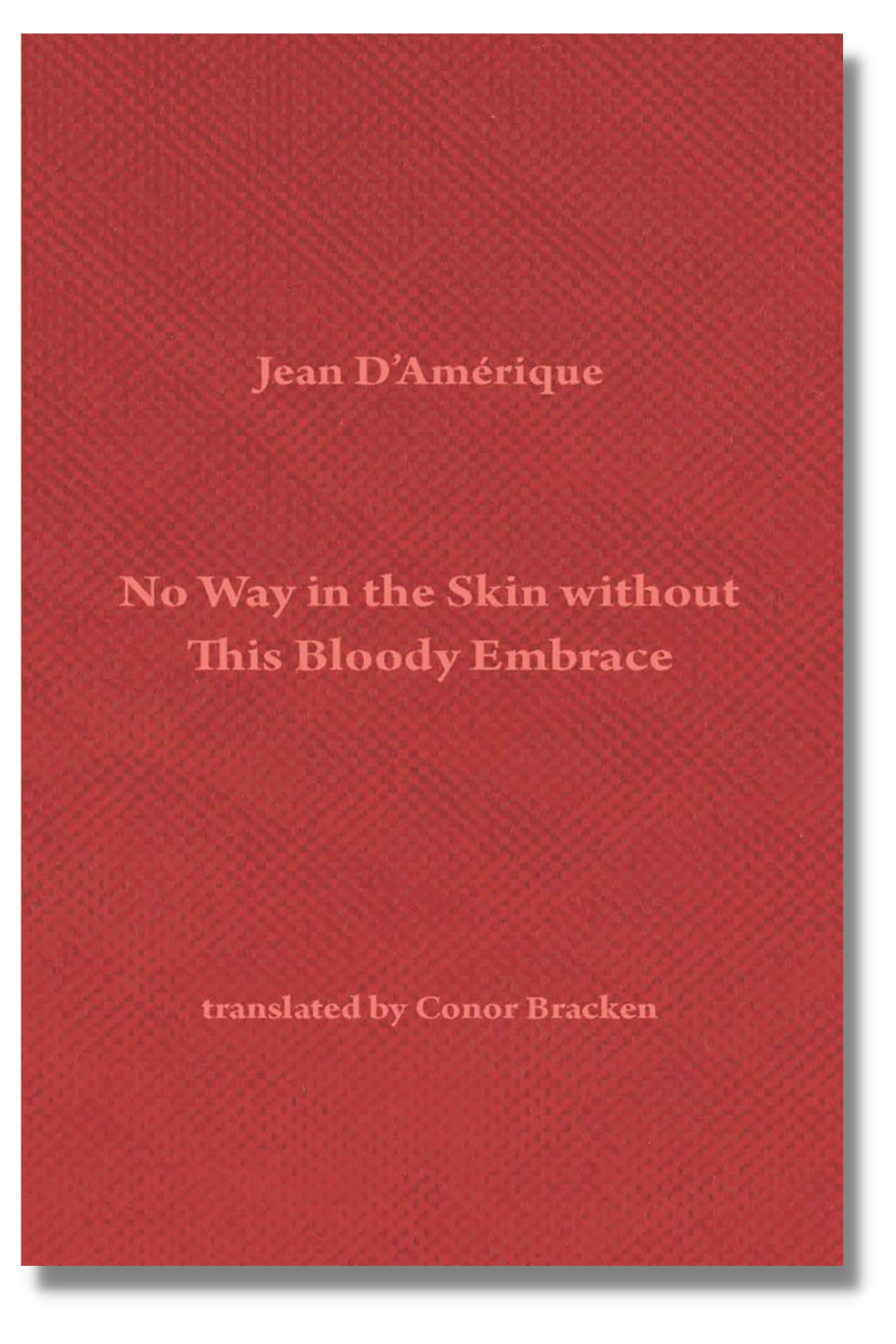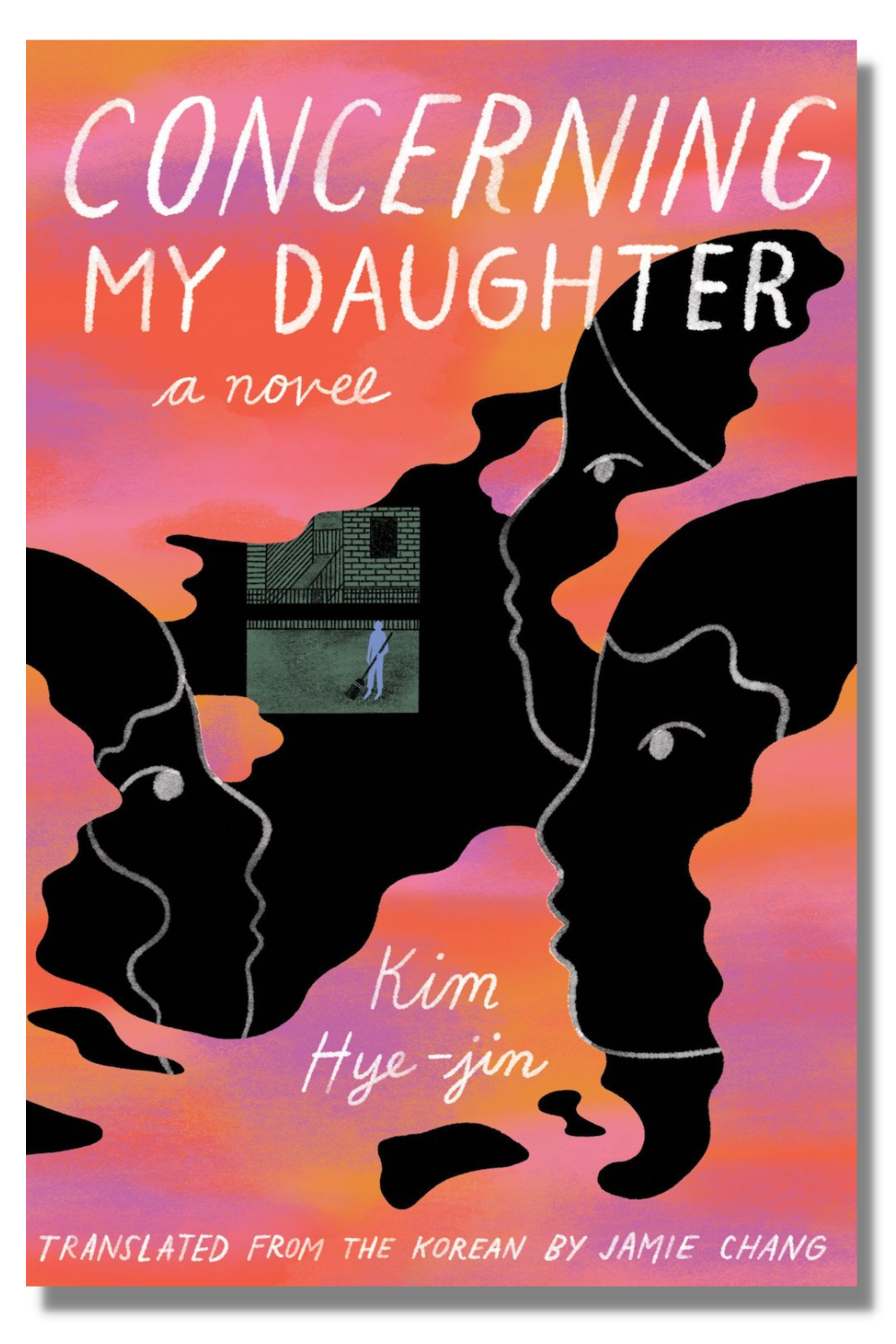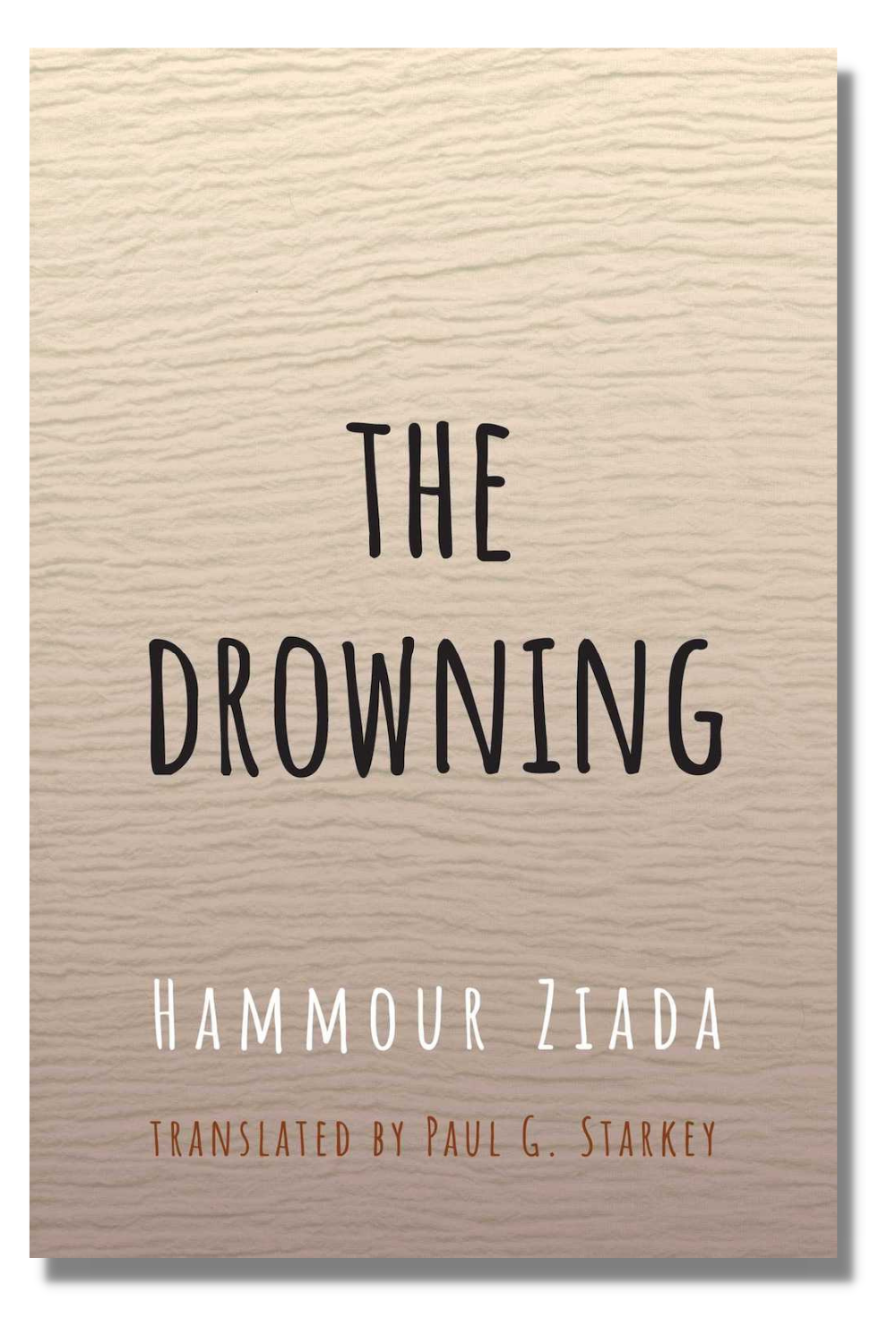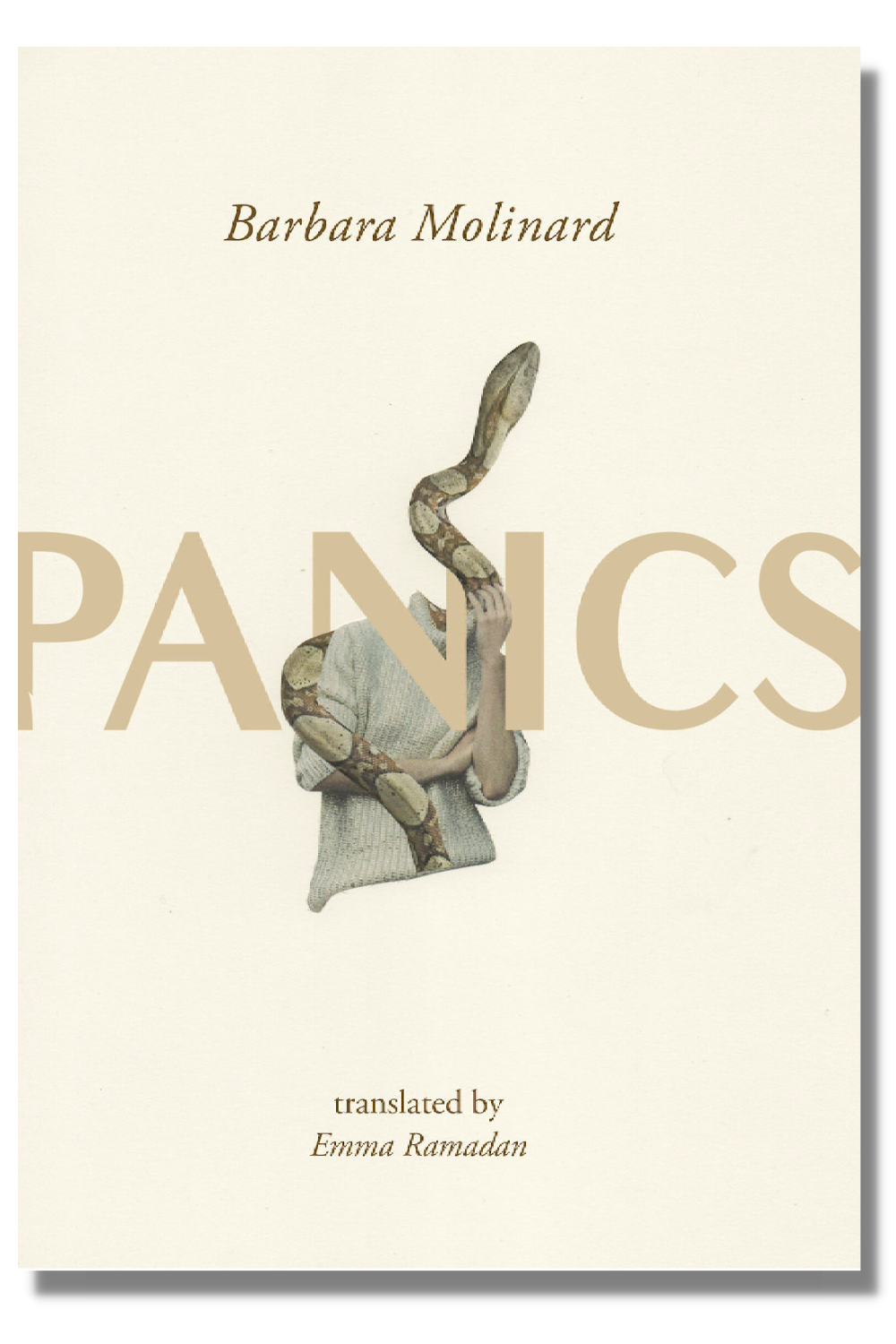From Ugly Duckling Presse | No Way in the Skin without This Bloody Embrace by Jean D’Amerique, translated from the French by Conor Bracken | Poetry | 120 pages | ISBN 9781946433947 | US$20.00
What the publisher says: “In Jean D’Amérique’s book-length poem, each page is as brief as a hurricane’s eye, glimpsing the eerie territory his speaker traverses like an apocalyptic flâneur. His ‘body / a devastation inventory,’ his stroll a ‘walk / to curse the sidewalks,’ he peers into the ruins—left by the winds of colonialism, capitalism, war, and natural disaster—and sees a ‘crop of eyes’ peering back.”
What Danielle Legros Georges says: “Conor Bracken takes this beautifully uneasy text and turns it into an English as fluid as D’Amérique’s original French, offering us a twin work of compelling poetic skill.”
What I say: Jean D’Amerique’s expansive, visceral poem offers a sense of the complex emotions and history pervading the spaces of which he writes. In Conor Bracken’s translation, the effect is vivid and tactile, and more than a little haunting. “It so happens that we lower the sun at midday. Sky damp with a red pact. A canonized city? Far from it. It fires fires fires on the beauty passing by. Glory to the canons’ rain.” This is literary work that’s hard to shake—as it should be.
From Restless Books | Concerning My Daughter by Kim Hye-jin, translated from the Korean by Jamie Chang | Fiction | 176 pages | ISBN 9781632063496 | US$17.00
What the publisher says: “With bracing honesty, Kim Hye-jin taps into the complexities of mother-daughter dynamics while unearthing the mechanisms of violence that target LGBTQ communities in traditional societies. Elegantly translated from the Korean by Jamie Chang, Concerning My Daughter shines a light on all facets of familial love and conflict.”
What Koffee & Kpop says: “I would recommend this book to anyone on the LGBTQ spectrum and allies, with the caveat that it will frustrate you and portions can be triggering, but it is a beautiful novel to watch unfold.”
What I say: If you’re going to write a memorable character study, you need a memorable central character. Thankfully, the protagonist of Concerning My Daughter absolutely fits that bill: she’s capable of both cruelty and compassion, and her commitment to tradition threatens her bond with her daughter. It’s not always an easy read, but it makes its protagonist’s evolution feel decidedly lived in.
Read an excerpt of Concerning My Daughter on WWB.
From Other Press | Bold Ventures: Thirteen Tales of Architectural Tragedy by Charlotte Van den Broeck, translated from the Dutch by David McKay | Nonfiction | 304 pages | ISBN 9781635423174 | US$27.99
What the publisher says: “In thirteen fascinating chapters, Charlotte Van den Broeck goes in search of buildings that were fatal to their architects—architects who either killed themselves or are rumored to have done so. They range across time and space from a church with a twisted spire in seventeenth-century France to a theater that collapsed mid-performance in 1920s Washington, DC, and an eerily sinking swimming pool in the author’s hometown.”
What Olivia Laing at The Guardian says: “The subject isn’t twisted church towers and sinking swimming pools so much as a melodramatic and hyper-personal topography of creativity, a landscape that for Van den Broeck appears seamed with danger and fraught with risk.”
What I say: Charlotte Van den Broeck’s new book grapples with big questions about the creation of architecture—and, more broadly, any creative work—and the consequences it can have for mental health. The overall effect is wide-ranging, and the book follows its author across numerous countries, with stops in places as disparate as Vienna and New Jersey’s Pine Barrens. And a tip of the hat to the great John McPhee is always a bonus.
From Interlink Books | The Drowning by Hammour Ziada, translated from the Arabic by Paul Starkey | Fiction | 288 pages | ISBN 9781623719067 | US$16.00
What the publisher says: “Sudan, 1968, the military coup taking place in Khartoum echoes all the way to the small rural town of Hajer Narti, where the body of a young girl has just been found in the Nile. Like every time a body is washed up on the shore, Fatima shows up. According to popular belief, when the Nile brings a new body back, it also brings back an old one. Fatima is still looking for her daughter Su’ad, believed to have drowned many years ago.”
What I say: As its title suggests, The Drowning concerns itself intimately with matters of life and death. But these aren’t the only moments of change between states that this novel reckons with; it’s also set at a time of political upheaval. And, in Paul Starkey’s translation, Hammour Ziada’s prose illustrates how abruptly certain transformations—including from the quotidian to the tragic—can take place.
From Feminist Press | Panics by Barbara Molinard, translated from the French by Emma Ramadan | Fiction | 128 pages | ISBN 9781558612952 | US$15.95
What the publisher says: “In the unsettling tradition of Franz Kafka, Djuna Barnes, Leonora Carrington, and more, Panics recovers the work of a tormented writer who often destroyed her writing as soon as she produced it, and whose insights into violence, mental illness, and bodily autonomy are simultaneously absurdist and razor-sharp.”
What Charlie Lee at the New York Times says: “Her stories were not written for any reader. Their existence seems like a miracle. Upon encountering them, there is the sense that one is stealing a glimpse of something intensely private, unmediated, a soul in anguish.”
What I say: If you’re looking to get a sense of the place where psychological distress curdles into outright horror, look no further than Panics. These short stories are rife with abrupt and unsettling transformations, situating their characters on the borders separating life and death. It’s thoroughly immersive and entirely disquieting—and an absolutely singular literary work.
Copyright © 2022 Tobias Carroll. All rights reserved.
Looking for more reading suggestions? Check out Tobias Carroll’s recommendations from last month.
Disclosure: Words Without Borders is an affiliate of Bookshop.org and will earn a commission if you use the links above to make a purchase.

















